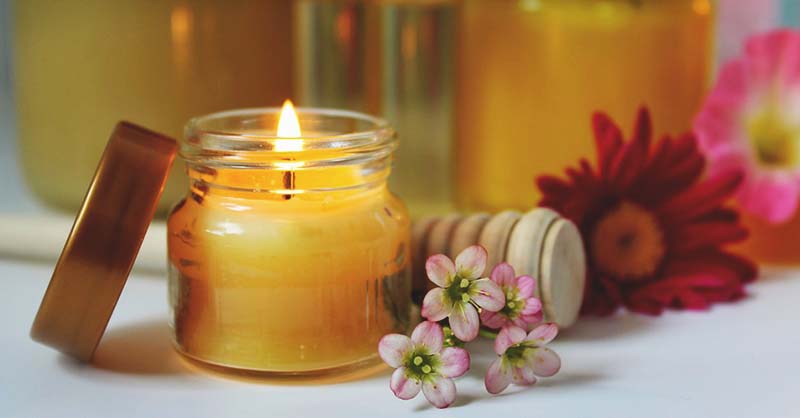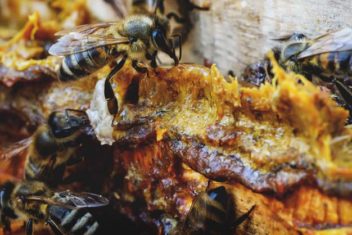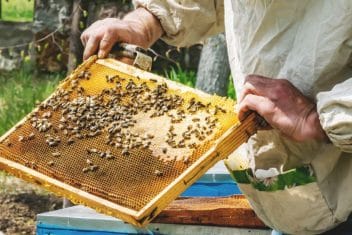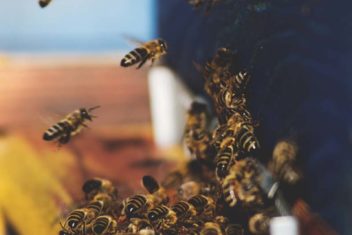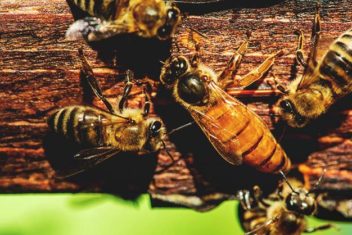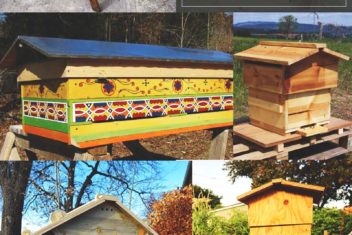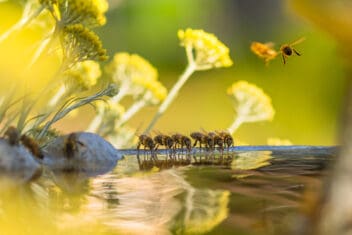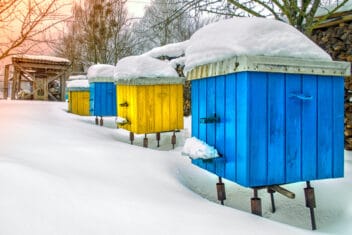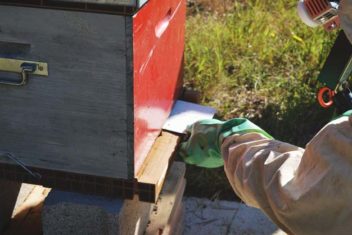There may come a time when you have more honey on your hands than you know what to do with, and your friends and family have more than they need too…hey, at least you are sharing the wealth!
Sharing is great, but what do you do when you have a surplus amount of honey and beeswax? You find someone who wants to pay you for it!
If you sell your beekeeping products, ideally you should be able to recover all the costs you initially incurred from starting your apiary, and hopefully even more!
Many honey operations started as small apiaries and turned into small businesses centered around their beekeeping operations. Over time, these successful keepers even became suppliers for large companies, who buy wholesale from the beekeeper, and then either sell the honey, or beekeeping products containing honey or beeswax.
Ready to cash in?
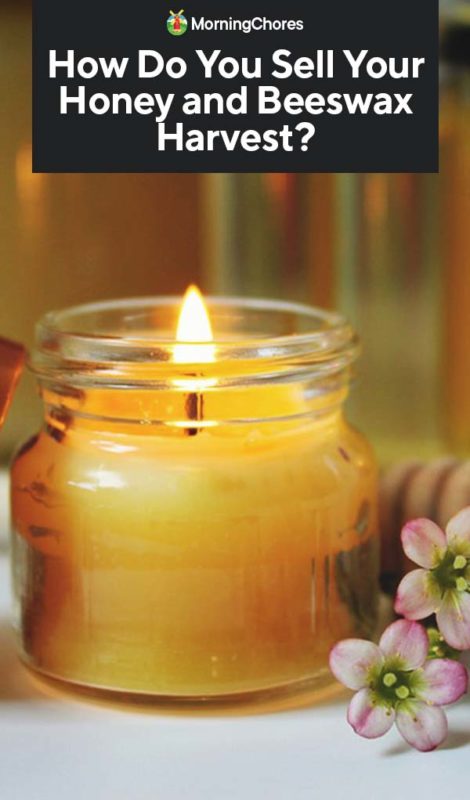
1. Who Buys Beeswax?
Going back to our previous list of beeswax uses, you can easily start to pick out some prospective wax customers, but here’s a list of people to consider when starting to sell your wax:
– Crafters
If you know of local craft fairs, vendor fairs, or flea markets, you can gather up your wax and head on out to sell to crafters who’d love to get their paws on some creamy, locally sourced, beeswax.
You can also create an online store on popular crafting websites, like Etsy. Selling on sites like this makes things pretty easy because the crafters come to Etsy knowing it is the ideal place to purchase their crafting supplies.
– Commercial Companies
Commercial companies can be a bit harder to get into, but some of the larger corporations may take on local beekeepers as a wholesale supplier, depending on your apiary’s yield. There are always a few companies who pride themselves on utilizing pure, locally harvested beeswax in their products, so it never hurts to ask!
2. Who Buys Honey?
Maybe the better question is, who doesn’t want honey?
Aside from friends and family, you can easily sell your honey to locals who would love a taste of real honey harvested from nearby bees.
– Local Consumers
Marketing to local customers can also help increase awareness of beekeeping, raise interest, and potentially prompt questions about bees. In that case, you can assist your local bee population by educating the public on the importance of protecting the bee population.
– Local Restaurants or Grocery Stores
You can reach out to local restaurants and grocers to offer your honey. A great selling point is that they can market their honey-laden menu item as locally sourced honey.
– Farmer’s Markets
County farmer’s markets are special because those who shop at the markets are looking to support local farmers, and enjoy knowing where their food comes from.
Setting up a stand of golden mason jars brimming with honey is sure to bring customers to the table…and coming back for more.
Make sure to hand out your beekeeping business cards so they know how to reach you when their supply runs low!
How to Market Your Honey and Beeswax
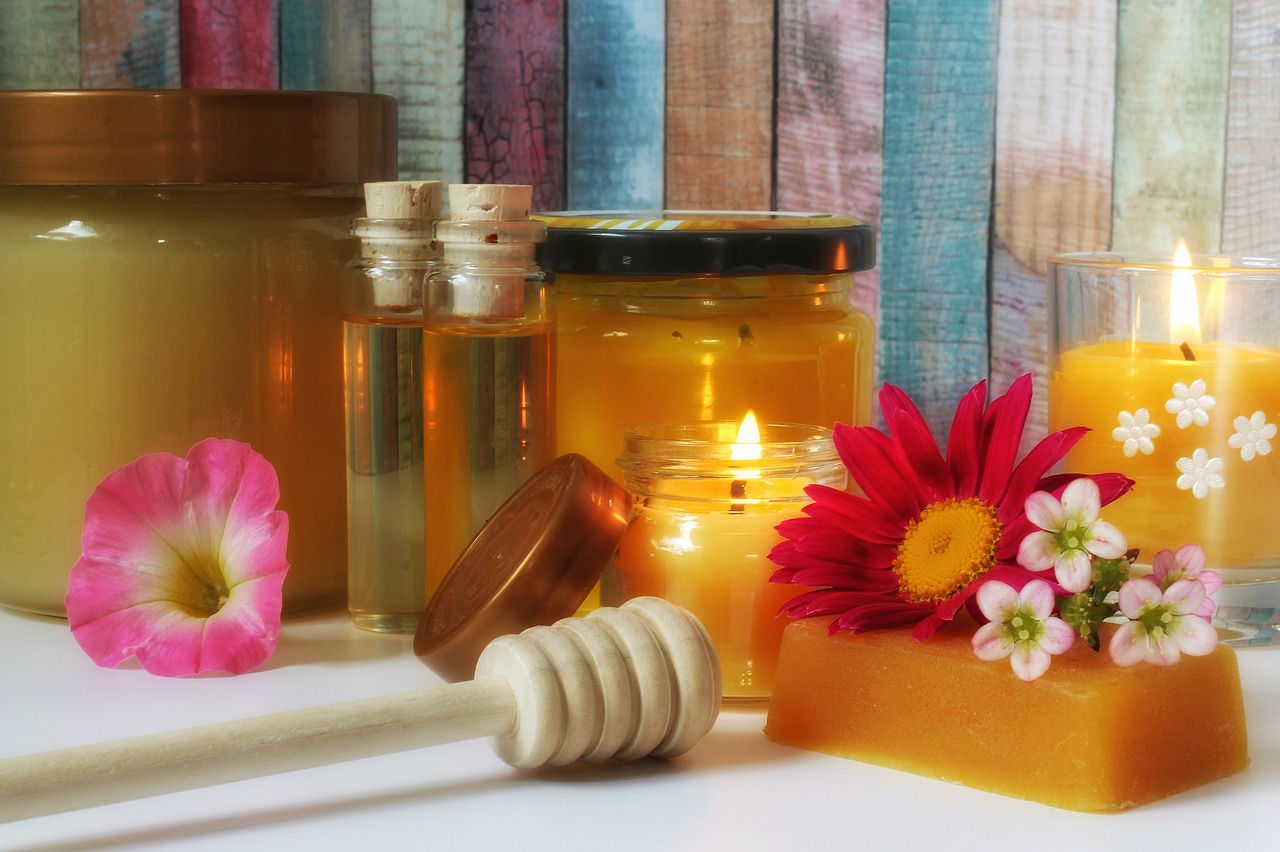
Aside from the local events, and online stores like Etsy, you can create your own website to sell your beekeeping products from. A lot of times simply creating a website, or showing up at a farmer’s market a few times isn’t enough to gain repeat customers, or expand your reach to new potential customers. Therefore, you need a marketing mix; so let’s dig in:
1. Networking with Fellow Homesteaders
This is the perfect people to start networking with. Go to local events, shop their products, and promote their businesses as well as your own. Many times, this kindness will go a long way and be returned in favor.
Referrals and word-of-mouth are great ways to gain new customers and make a name for yourself, so show up, and show up with a sample jar of your liquid gold.
2. Social Media
In-person marketing and networking are great, but marketing on social media is a must for anyone looking to seriously start a business. Join groups that relate to your beekeeping products and answer questions. Never get spammy, and focus on being helpful.
Establishing yourself as a trusted authority on bees, beekeeping, and honey will go a long way in your new business.
3. SEO Website
If you are ambitious, you can set up your own online store and sell your beekeeping products directly, rather than going through a site that charges fees for sales. A simple website can be quite inexpensive, and there are more and more tools available to help newbie entrepreneurs set up their websites within a few days.
SEO stands for Search Engine Optimization and if you have a website, you can optimize it so that potential customers can easily find it on the internet. This is done through the use of keywords and phrases throughout your website, that a potential customer may use when searching for something like, “raw honey for sale.”
How to Legally Sell Honey
When you sell honey for human consumption, you will sell it through one of two different avenues: directly to the consumer or wholesale. Each of these avenues may have different laws on the federal, as well as the state, level that you must look into prior to selling your honey. It can be different for everyone depending upon where you are located.
Generally speaking, honey can be sold raw directly to the consumer, without any licensing, from your home. Where is gets dicey is if you are processing honey in any way. If you add any flavors or coloring to your honey, you enter into a processing phase of honey and you may need more licensing or inspections.
Aside from the extra work that goes into beekeeping and processing honey, you are also risking your reputation if your honey is graded poorly (this happens if there are a lot of additives or things like corn syrup found in your honey).
It is optional to have your honey graded in some states, but those who want raw honey will wonder why you have not had your honey graded, and may pass on your products.
To be safe, always do your research on laws regarding the sale of food items to consumers, or through wholesale. Regulations and laws can change on a daily basis, so always keep an eye on the industry.
What to Charge When you Sell your Beekeeping Products

Your honey, or wax, prices will ultimately be determined by the type of honey, the quality, and where you live.
For example, if your honey has additives, it will be worth less than if it were raw. If you can market it as clover honey from the fields of Canada, people may pay more for it. However, if the market is down in your area, and honey prices are low, you may not make much from your honey.
The best thing to do when deciding what to charge is to focus on your current market, consider if you will be selling online or in-person, and watch the prices of others selling within your parameters.
Other Beekeeping Products to Sell
Although not one of the ‘easier’ beekeeping products to sell, by now you should know how difficult it is to obtain a queen when facing any of the beekeeping problems where you may need a new queen.
If you are a confident beekeeper, you should consider raising queen bees as a profitable beekeeping product to sell, in addition to honey and beeswax.
Becoming a beekeeper is an exciting adventure, and once you start, the possibilities for other ventures and hobbies become endless. Beekeeping is not just a fun hobby, it can be much more if you are ambitious and have a passion for your apiary.
Selling your beekeeping products is a great way to recoup costs from equipment, bees, and other unforeseen expenses, but it is also a fantastic way to educate your community, and the world, on the benefits of honey, beeswax, and of course bees.
So, how far you go depends on your goals and how much you love beekeeping, but if you’ve read this far, it’s safe to assume you are hooked. So get out there, start exploring, networking, and spreading that honey far and wide for others to enjoy.

